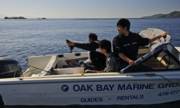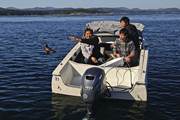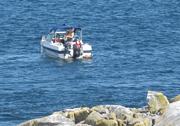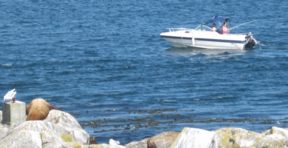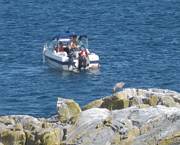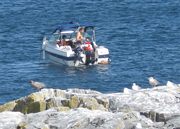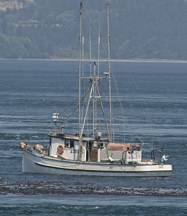|
|
||||||||||
|
Illegal Fishing at Race Rocks
|
||||||||||
| A Guidelines page outlines the acceptable activities in the reserve. Both Commercial and Recreational Fishing are not allowed in the reserve. |
|
We are obliged as managers of the area and ecological reserve warden, to report all examples of disturbances to BC Parks, and to Federal Fisheries and Oceans. People must realize that animals disturbed by their presence use up valuable energy when food resources may not plentiful. The environment they live in is such that any energy is needed for body temperature regulation. They often exist on a very slim energy margin . |
 |
There is also now a Rockfish Conservation Area in the zone around Race Rocks and Rosedale Reef within the 40 metre depth contour that prohibits all fishing. See the this reference on the DFO website: |
|
Notice to Boaters and Anglers in the vicinity of Race Rocks ------ DFO 2009
Not following these guidelines, or the Be Whale Wise Marine Guidelines for Boaters, Paddlers and Viewers (Revised 2006), may constitute a violation of the Marine Mammal Regulations. Violators face potential fines of up to $100,000.
Your cooperation with these guidelines and regulations will help maintain the biodiversity of the Race Rocks Ecological Reserve. |
| Examples of Illegal Fishing in the Ecological Reserve: |
| Fishing for Rockfish. There has been a sports fishing closure for bottom fish in the Marine Protected Area since 1990, however we still get people claiming ignorance of the fact . |
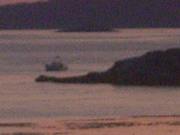 |
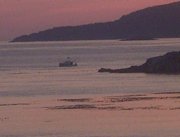 |
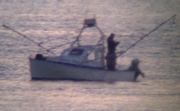 |
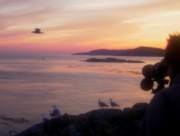 |
| June 3, 2009, 2100hrs Fishing vessel "Royal Flush" 3 persons on board noticed to be fishing in very close proximity to the NW side of West Rock. Attempt was made to raise the vessel on both VHF 16 and VHF 68 with no luck. However, immediately after, the vessel took off at high speed out of the reserve heading NW towards the Beecher Bay area. It turns out that this was a native vessel fishing under a communal licence for food, social, and ceremonial purpose. The BC Sport Fishing Regulations; Rock Fish Conservation closures; do not apply in this situation. You can view the sport fishing regulations at: http://www.pac.dfo-mpo.gc.ca/recfish Editors note: It is however disappointing that the spirit of conservation of the living resources of this area was not being followed by these individuals. According to research done in many No-Take zones throughout the world, the fish that are generated by a marine sanctuary have an incredibly valuable role in helping to repopulate the fisheries of adjacent areas. From the Rockfish Conservation Area page of the DFO website we can read the following about the declining populations of these species:: "There are 37 species of rockfish that are caught in fisheries off the coast of British Columbia. Inshore rockfish species (which include yelloweye, quillback, copper, china, and tiger) are usually caught with hook and line gear in rocky reef habitats. Monitoring and research programs in B.C. indicate that inshore rockfish, especially within the inland waters of Vancouver Island, are at low levels of abundance. Fisheries and Oceans Canada (DFO) needs your help to protect and conserve inshore rockfish. Since 2002, catch restrictions, fishery monitoring, stock assessment programs, and Rockfish Conservation Areas (RCAs) have been established throughout the B.C. coast. DFO’s rockfish conservation strategy is designed to alleviate further rockfish population declines. Within RCAs, inshore rockfish are protected from all mortality associated with recreational and commercial fisheries." |
|
Link to the file on The Problem with Motor Boats in the Reserve: |
 Link to the file on Fishing Equipment entanglement at Race Rocks Link to the file on Fishing Equipment entanglement at Race Rocks |
| Return to the Environmental Impacts and Disturbances Index File |
 |
 |
Sitemap | Contact |
webmaster:
Garry Fletcher |
Copyright |

